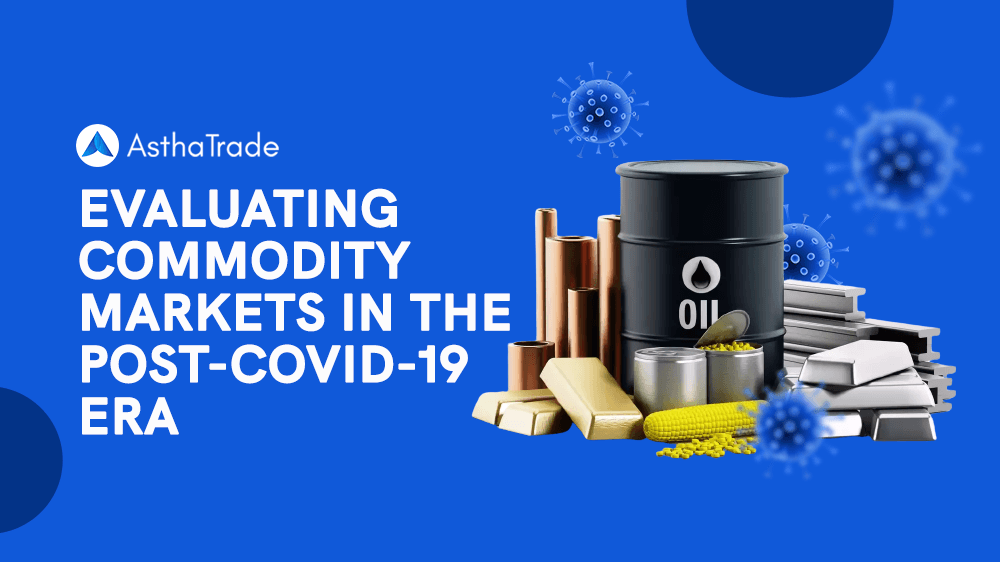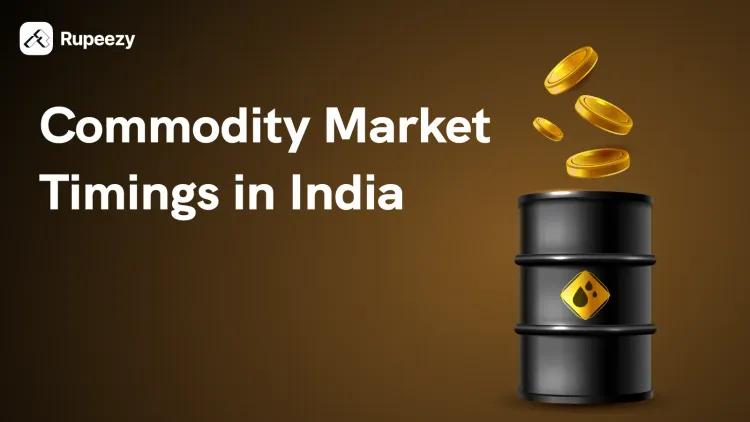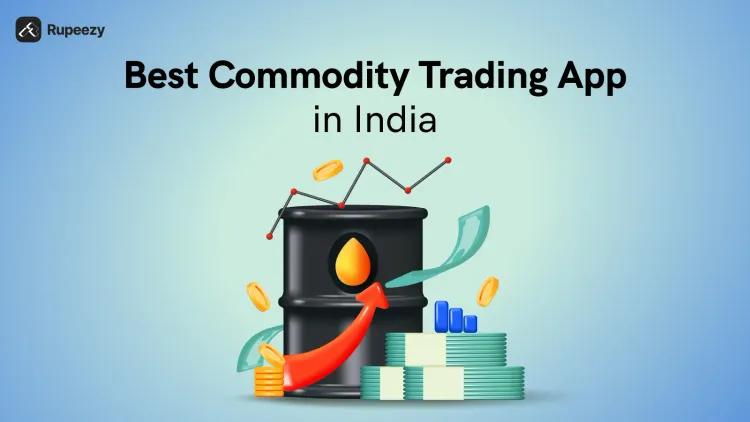What is Commodity Trading? Types, Benefits, How to Trade


00:00 / 00:00
Commodity trading is crucial to the global economy since it allows one to buy and sell raw materials like metals, agricultural products, and energy. IMCX and NCDEX are on the rise in India, accommodating spot and derivative trading that investors employ to navigate price, to profit from price changes, and hedge against risks. This article outlines the types of commodities, the trading process, trader types, and the associated risks and benefits, providing a guide for those interested in getting started.
What is Commodity Trading?
Commodity trading meaning is the trading of raw materials and primary products, which can be categorized into three sectors: metals, agricultural produce, and energy. The commodities can be either traded in the form of physical commodities or through derivatives such as futures and options.
Investors and businesses invest in commodity trading to protect themselves from possible market movement risks or to make a gain from price changes. In India, commodity trading plays an important role in the economy of the country, primarily in agriculture and industries in energy, manufacturing, and construction.
Types of Commodities Traded in India
Agricultural Commodities: This includes grains like wheat, rice, and pulses, as well as oilseeds, cotton, and spices.
Energy Commodities: Crude oil, natural gas, and coal fall under this category.
Metals: Precious metals like gold and silver, along with industrial metals like copper, aluminum, and zinc, are commonly traded.
Others: This category includes commodities such as rubber, and livestock.
Ref:
How Commodity Trading Works in India
In India, commodity trading works either through Spot Markets or through the Derivates markets (Futures & Options). In the spot market, the commodities are bought and sold with immediate delivery and payment. Here, the payment and delivery of goods occur on the spot, hence the name Spot Market.
In the derivatives market, a contract is drawn between two parties which will be drawn based on a commodity between the two parties, that is, the buyer and seller, which is to be executed on or before the predetermined date at a predetermined price.
In the case of futures contracts, both the buyers and the sellers must compulsorily execute the contract. On the other hand, in the options contracts, the buyers of the options contract have the choice of deciding whether they want to execute the contract or not.
Major Commodity Exchanges in India
Multi Commodity Exchange (MCX): It was established in 2003, and is the largest commodity exchange in India. It primarily deals with metals, energy commodities, and certain agricultural products.
National Commodity and Derivatives Exchange (NCDEX): It was launched in the year 2003 NCDEX specialises in agricultural commodities and is the preferred platform for the trading of products like wheat, sugar, and pulses.
Indian Commodity Exchange (ICEX): Started its operations in 2017, ICEX primarily focuses on trading diamonds and derivatives in other commodities.
Commodities Traded on MCX (Multi Commodity Exchange of India)
1. Agricultural Commodities: Black Pepper, Castor Seed, Crude Palm Oil, Cardamom, Cotton, Mentha Oil, Rubber, Palmolein
2. Energy: Natural Gas, Crude Oil
3. Base Metals: Brass, Aluminium, Lead, Copper, Zinc, Nickel
4. Bullion: Gold, Silver
Commodities Traded on NCDEX (National Commodity and Derivatives Exchange)
1. Cereals and Pulses: Maize Kharif/South, Maize Rabi, Barley, Wheat, Chana (Chickpea), Moong, Paddy (Basmati)
2. Soft Commodities: Sugar
3. Fibres: Kapas, Cotton, Guar Seed, Guar Gum
4. Spices: Black Pepper, Jeera (Cumin), Turmeric, Coriander
5. Oil and Oilseeds: Castor Seed, Soybean, Mustard Seed, Cottonseed Oil Cake, Refined Soy Oil, Crude Palm Oil
Types of Traders in Commodity Markets
1. Hedgers:
Traders who use the commodity markets as an instrument to protect themselves against price swings as opposed to making money are known as hedgers. Hedgers use futures contracts to lock in prices to reduce risk while trading commodities. By doing this, they can protect themselves from adverse fluctuations in price.
2. Speculators:
Speculators, on the other hand, trade futures in commodity markets in an attempt to profit from fluctuations in price. Speculators attempt to predict future price fluctuations and adjust their holdings of futures contracts appropriately. Speculation is riskier since it is subject to possible price swings that may not always go in the speculator's favor.
3. Arbitrageurs
These are players who take advantage of the differences in prices in different markets or related commodities. As the arbitrageurs take advantage of the inefficiencies that occur in the market, they can earn profits risk-free.
Role of Brokers and Clearing Members
Brokers and clearing members are essential to the efficient operation of commodity markets as well as the correct settlement of trades. These brokers act as middlemen between the traders and the exchanges, allowing them to execute buy or sell orders on behalf of the traders. They provide market access, execution, insights, and client account management.
On the other hand, clearing members handle the settlement and clearing duties between various trading members who trade on NSE. They keep track of positions continuously to ensure that trading happens within a defined risk parameter to ensure stability in the market and limit defaults at the time of settlement.
Benefits of Commodity Trading
Inflation Hedge: Commodities are assets whose prices increase with inflation. Investors invest in commodities during times of inflation because during this period the prices of raw materials rise. As a result, they can potentially retain or boost their buying power. Among the common commodities invested gold, silver, and crude oil are the common commodities that are used as inflation hedges.
Diversification: Commodity trading is one of the ways of diversifying an investment portfolio, as it often moves differently from other investments such as stocks or bonds, allowing it to be a hedge against quick movements in equity markets. In times of high inflation, for instance, people always opt to purchase commodities such as gold or oil when prices are going up; therefore, this can be used as a protection against falling stock values.
Margin Trading: Commodity broker provides a lesser margin while trading when compared to the stock and bond markets. Also, it allows the traders to use borrowed funds which helps the hedgers and speculators gain more profit on their trades.
Risks of Commodity Trading
Leverage Risk: Leverage can increase one's profit opportunities but also can increase the losses in the same proportion. Even a small adverse shift in the commodity price may lead to extreme losses in trading with a leverage, even greater than the actual investment. Therefore, trading with leverage is quite risky for traders with low experience.
High Volatility: Commodities are known to be volatile in terms of price. Usually, factors such as weather conditions, geopolitical tensions, and even changes in supply and demand can bring a high change in prices. For instance, as soon as there is news about a war between two countries it would lead to a drastic price change in the commodity market.
How to Start Commodity Trading in India
Here is a step-by-step guide to learn how to start commodity trading in India through Rupeezy.
Download Rupeezy App: You need to install Rupeezy’s Flow app from the Google Play Store/ App Store to start investing in the stock market.
Visit Website: You will be sent to Rupeezy's official website to begin the account creation procedure.
Fill in Personal Details: Fill out your personal information, including your name, address, PAN number, and contact information.
Upload Documents: Upload the required documents for KYC verification, such as an Aadhar card, a PAN card, and bank statements.
eSign the Form: Finish the process by electronically signing the application form.
Verification: Rupeezy's onboarding staff will verify your information, and once verified, your Demat account will be activated. You shall receive a mail including your login credentials like Client Code and other details.
Set the Password: Once you have received the client code, you can access the app and create a password to secure your data and activity.
Start Trading: Once your account is active, you can start trading or investing using the broker's platform.
Search for Commodity stocks: From the watchlist, you can search for commodity stocks or derivatives and start trading.
Conclusion
In India, trading commodities seems to be a vibrant and financially simple way to participate in the international economy. When someone thoroughly understands the commodities market, it helps them minimize risks or look for opportunities to benefit from commodity trading. However, the volatility and risks involved in it require careful planning and adequate knowledge before trading in commodity markets.
Check Out These Related Articles |
The content on this blog is for educational purposes only and should not be considered investment advice. While we strive for accuracy, some information may contain errors or delays in updates.
Mentions of stocks or investment products are solely for informational purposes and do not constitute recommendations. Investors should conduct their own research before making any decisions.
Investing in financial markets are subject to market risks, and past performance does not guarantee future results. It is advisable to consult a qualified financial professional, review official documents, and verify information independently before making investment decisions.

All Category









